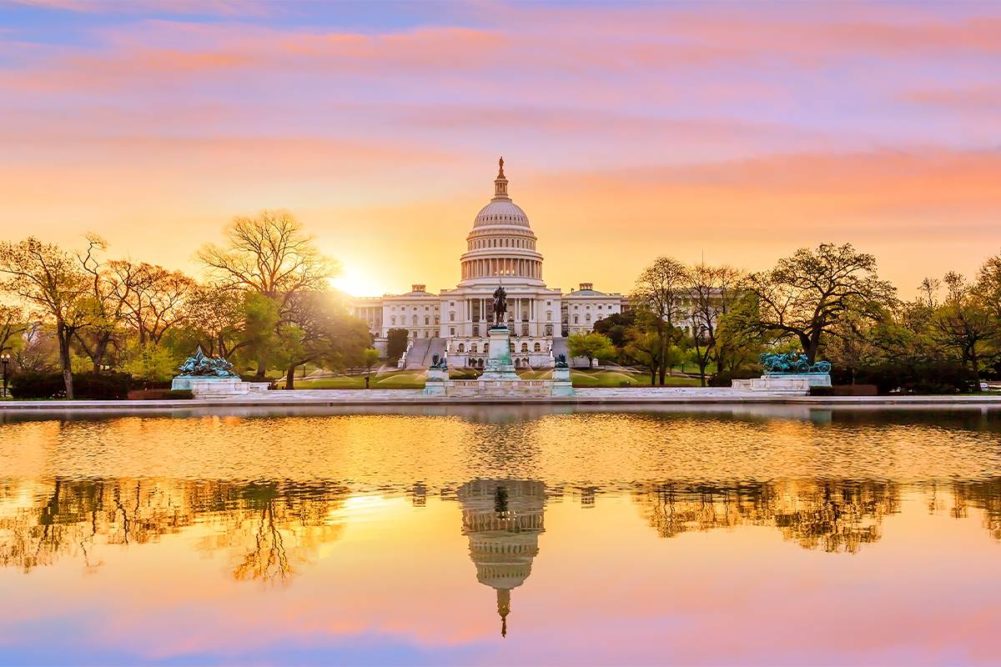The Jan. 6 committee has maintained a steady drumbeat of criticism of former President Donald Trump. The Supreme Court overturned Roe v. Wade and also cut back executive-branch regulatory powers, especially with respect to climate change. The Russian invasion of Ukraine has become a war of attrition in spite of substantial US assistance to the latter. The Federal Reserve has initiated aggressive interest-rate hikes to curb inflation, which still reached a 41-year high of 9.1% in June. And primary season has kicked off the runup to November’s elections.
Are there any common themes that run through these disparate developments? Several come to mind. One is that political divisiveness continues apace. Another is the absence of congressional leadership. A third is the need for more coherent policies from the Biden administration.
The Supreme Court’s rulings on abortion and regulatory authority have brought out voices on the extremes of these issues. Some states have moved to tighten limits on abortion while other states have reaffirmed their support for a woman’s right to choose. What is emerging is widely varying policies among the states, a crazy patchwork quilt that will call for a unifying federal policy.
Though less publicized, the same effect will flow from the limits on the Environmental Protection Agency’s regulatory powers. In effect, the Supreme Court’s rulings call on Congress to do its job — find compromise policies that provide uniformity. Otherwise, women and companies will face many different policy regimes, raising costs, uncertainties and, likely, a race among states to the extremes of intolerance and regulatory oversight rather than a shared social fabric and common market.
The Supreme Court, by removing a half century of settled abortion policy and narrowing regulatory discretion on the environment, has put the onus on Congress to legislate. This squarely poses the question: can members of Congress stop posturing on issues like abortion, energy policy and climate change and pass laws that provide clear guidance?
Republicans have forced Democrats to rely on the reconciliation process to move legislation in the Senate in order to bypass the normal 60-vote threshold to avoid a filibuster. Even the reconciliation avenue has closed, however, as Senator Joe Manchin of West Virginia has refused to go along with legislation he regards as potentially inflationary, at least until inflation rates start coming down. And House Democrats have added several social-spending measures to a bill on competition policy that passed the Senate months ago by a wide, bipartisan margin. As a result, legislative gridlock continues even before Congress confronts these new, highly contentious policy challenges.
So, instead of legislative progress, media and partisan reactions continue to amplify differences and political posturing on both sides of the aisle. The approaching mid-term elections only aggravate these appeals to each party’s most extreme, loyal supporters. When the dust clears, the problem of finding compromise solutions will remain. Without such compromise, America could lose one of its greatest strengths — a cohesive society and a large, shared market.
Roughly two-thirds of Americans think the country is heading in the wrong direction. Some of this was self-inflicted. Too much COVID-relief spending bred inflation. An overly abrupt shift away from fossil-fuel infrastructure investments contributed to skyrocketing gas prices. Confusing signals on COVID undermined the credibility of health officials. And Biden’s early support for policy ideas emanating from the progressive wing of his party frustrated centrists without satisfying the more strident liberals.
Events have not helped, especially Russia’s invasion of Ukraine. The invasion cut off Ukrainian food exports, typically about 10% of global caloric trade, helping boost food prices. Russian sanctions pushed energy prices higher and increased reliance on unfriendly, unreliable energy exporters. Biden’s trip courting Mohammed bin Salman, crown prince of Saudi Arabia, offended both human rights and climate-change advocates. Yet, it is no more likely than a gas tax holiday to bring down gas prices.
The one bright spot in recent months was the passage and signing of the Ukraine Democracy Defense Lend-Lease Act of 2022. It put America at the head of world democracies in a way that Biden’s dialogue among democracies never did. Even here, however, one can see cracks emerging in the West’s alliance to defend Ukraine, rule of law and democracy. More broadly, many countries in the south (i.e., Asian, African and Latin American) have abstained from criticizing the invasion and have been open to overtures from China and Russia alike.
The Ukraine Lend-Lease Act does offer the Biden administration one opportunity to relieve human suffering in parts of the south and further assert Biden’s leadership. Russia is using its blockade of Black Sea ports as a “food weapon,” harming Ukrainian agriculture while also intensifying food insecurity in a number of poor, food-importing countries. The United States could add food aid to the shipments under the Ukraine Lend-Lease Act.
Adding food aid for needy countries would blunt at least part of Russia’s food weaponry while bringing relief and stability to poor countries facing hunger, malnutrition and starvation. But it would just be a start in coping with America’s mounting problems.




